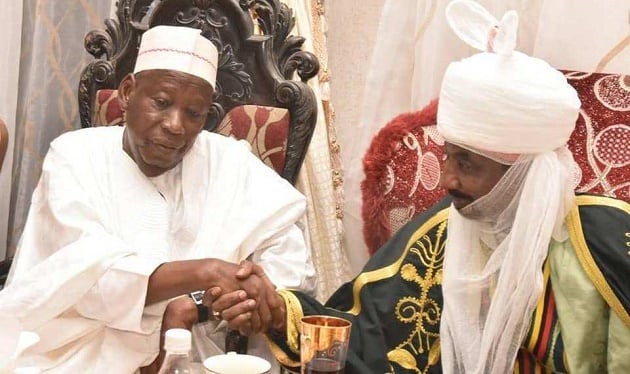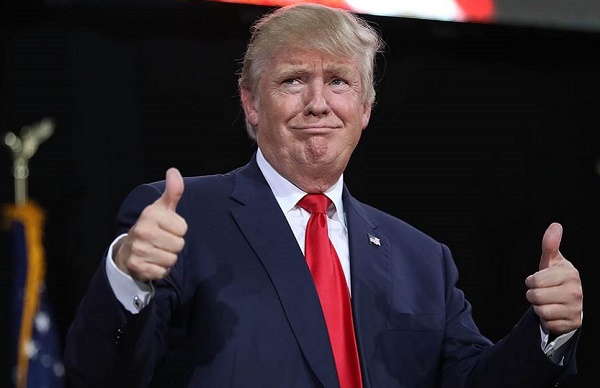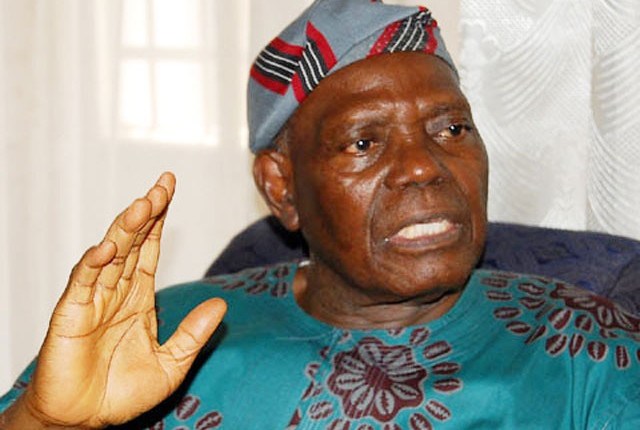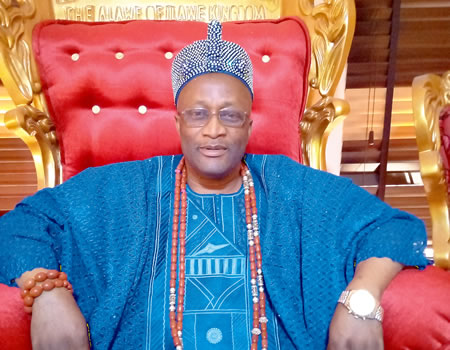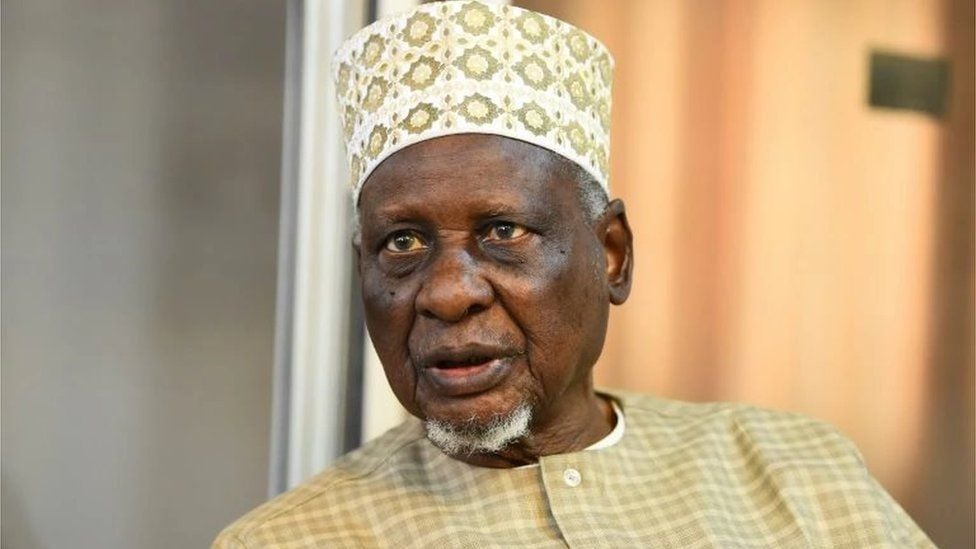The dethronement of His Highness Alhaji Muhammadu Sanusi II as the emir of Kano did not catch some of us by surprise: it was long in the making. All you need to do is google his public statements in the last four years, either when he was commenting on President Muhammadu Buhari’s economic policies or Dr Abdullahi Ganduje’s performance as governor — or the tailor-made problems obstructing the progress of northern Nigeria. It did not help that Sanusi was made emir by Ganduje’s predecessor, Alhaji Rabi’u Musa Kwankwaso, who tried to help unseat the governor in 2019. It was just a matter of time for the turban to be yanked off Sanusi’s head. We saw it coming.
For a man who easily divides opinion, we are bound to view Sanusi’s dethronement in different ways. In the camp of Sanusi are those who think such a cerebral royal should not have been humiliated out of the palace, no matter what. In the other camp are those who are saying “it serves him right”. I have heard the gloating gang accuse him of getting “due reward” for his “past sins”. Interestingly, most of those deriding His Highness do not possess a fraction of his intellect, neither will they ever attain half the height he has attained in life. If you ask me to choose who should lead me between Ganduje and Sanusi, I know whom I will choose. I don’t know about you.
In the enemy camp, Sanusi is never in want of staunch adversaries. Many have not forgiven him for the role he played in the ouster of President Goodluck Jonathan in 2015. In 2014, when he was governor of the Central Bank of Nigeria (CBN), he had written a letter to Jonathan alleging that $49.8 billion was “missing” from the federation account. He arrived at this figure after calculating what he believed to be the difference between crude oil sales between January and July 2013 and the actual remittance to the federation account by the Nigerian National Petroleum Corporation (NNPC). After a lot of back and forth, we finally agreed that the actual figure was around $20 billion.
Piqued that the letter leaked to the press, Jonathan reportedly called Sanusi into his office and asked him to resign in peace. Knowing that the CBN law does not permit the president to unilaterally fire him, Sanusi — one of the most stubborn Nigerians since 1914 — reportedly told the president to his face that he would not resign. He also knew that Jonathan could not garner the required two-thirds majority of the senate to remove him from office. But this is an all-powerful presidential system; Sanusi still found himself thrown out of the CBN through suspension based on accusations of financial recklessness brought against him by the Financial Reporting Council of Nigeria (FRC).
Advertisement
Nigeria — bitterly poisoned along ethno-religious lines ahead of the 2015 elections (from which we are yet to recover, I must add) — went into frenzy. The All Progressives Congress (APC) quickly adopted Sanusi as if he was an orphan and defended him day and night — and Sanusi was cast as a tool being used by the opposition against Jonathan. He went to court to challenge his suspension. In the process, his uncle, father-in-law and emir of Kano, Alhaji Ado Bayero, died. A fierce succession battle ensued between Sanusi and Alhaji Lamido Sanusi Ado Bayero, the late emir’s son. Kwankwaso — reportedly promised the APC presidential ticket — threw his weight behind Sanusi.
As things turned out, Kwankwaso did not get the APC ticket. He came second behind Buhari in the APC primary. He clearly felt betrayed by the party’s power brokers, including his governor colleagues. They might have done the math and concluded that Buhari was the best bet to unseat Jonathan. To make matters worse, Kwankwaso’s successor, Ganduje — who was his deputy from 2011 to 2015 — decided to realign forces, naturally warming up to President Buhari while Kwankwaso was still hoping to be president. That was how Kwankwaso and Ganduje effectively parted ways. Kwankwaso later left APC and returned to PDP.
The emir was always going to be the collateral damage. Naturally outspoken, he did not shy away from commenting on national and state issues. He openly criticised Buhari’s policies on exchange rate and fuel subsidy to the discomfort of many. Some thought the emir should voice his criticisms privately since he had access to the president. He started amassing enemies in Buhari’s camp. Those ones are, naturally, happy that he has been deposed. In the end, he lost on two fronts: Jonathan’s supporters hated him and Buhari’s fans despised him. But the neutrals are satisfied that he spoke “truth to power” irrespective of religious, ethnic and political sentiments.
Advertisement
During the 2019 elections, Ganduje believed Sanusi was supporting Kwankwaso’s candidate, Mallam Abba Yusuf (PDP), to upstage him. Sanusi had allegedly criticised Ganduje for spending 30 days in China in search of loans. He said Ganduje was borrowing billions to do rail “just for people to attend weddings in Kano”. This was believed to have hit Ganduje very hard. In no time, corruption allegations showed up. Remember Sanusi was also suspended at CBN governor over corruption allegations — AFTER he wrote that letter. In Nigeria, corruption allegations are typically the first line of political response to critics (you can now add treason and terrorism to the crime list).
Ahead of the presidential contest, Sanusi made statements that were considered overtly political. Addressing imams, scholars and district heads two weeks to the elections, he said: “It is not always easy to have a leader who has both integrity and capacity to govern — two important qualities of a leader. If a leader does not have both integrity and capacity to govern, choose the one that has the capacity to govern because his capacity to govern will benefit the people while his lack of integrity will be his own harm. If you choose a man who has integrity without capacity to govern, his lack of capacity to govern will harm the people while his integrity will only benefit himself.”
His statements were rooted in the thoughts of Ahmad bin Hambal, the 8th century Muslim jurist regarded as the most significant exponent of the traditionalist approach in Sunni Islam. But by simple interpretation, Sanusi was believed to be campaigning against Buhari, whom critics had cast as having only personal integrity without competence. His opponent, Alhaji Atiku Abubakar, was viewed in many quarters as having the competence but lacking the integrity. With a few weeks to the presidential election, it was safe to conclude that the emir’s statements did not win him many friends in Aso Rock. Only a victory for Yusuf or Atiku could save his neck. Both lost.
He has several other enemies. His unending criticism of the socio-economic structure of the north keeps ruffling feathers. He criticised the relegation of the girl child, maintaining that it is not Islam but an outdated culture that is at play, citing the example of several Muslim-majority countries where the girl child is highly educated. He criticised polygamy among the poor which, he said, is breeding and sustaining poverty up north. He attacked the almajiri culture which encourages irresponsible parenthood as children are produced en masse and sent to the streets to beg for food under the guise of learning the Quran. These are not the statements you expect from a typical emir.
Advertisement
For northerners who think massive and reckless procreation is the key to the domination of Nigeria, Sanusi warned them to stop banking on quota system and federal character as the sun would set on those principles at some point. He regularly spoke about how the north was being dragged down by the millions of out-of-school children, malnutrition and drug abuse. What His Highness needed was big support from more northern leaders, other emirs, traditional rulers, clerics and opinion leaders. He clearly needed more hands on deck. What he got was a kick in the teeth. You can accuse him of speaking too critically and too bluntly, but you cannot accuse him of talking nonsense.
Most of the gloaters are terribly mistaken. You cannot cage a Sanusi. We are talking about a reformer, a philosopher and a cerebral royal. His life-long ambition was to be emir. That is now done and dusted. It is time for him to move to new grounds. In my books, he ranks high up among the most intelligent Nigerians alive. No society can keep such an endowed person down. I believe he has just been set free to be useful to Nigeria, Africa and the whole world in different capacities. I was against his being made emir of Kano in the first place — because I felt the position would cage him. It turned out I was wrong: his voice only became louder in the quest to reform society.
Sadly, this is our Nigeria in summary: Dr Abdullahi Umar Ganduje, the man we saw in a viral video the other day inside a babanriga flowing with milk and honey, is returned as governor for another four years; His Highness Alhaji Muhammadu Sanusi II, the intellectual royal and economist we saw in a video fighting for the girl child and preaching deep socio-cultural reform, is deposed as an emir. Why is anybody still wondering why Nigeria is like this — rudderless, regressive and grossly underdeveloped? This is our Nigeria where what is wrong has become right and what is right has become wrong. Evil often triumphs over good. But we don’t give up. We keep walking.
AND FOUR OTHER THINGS…
GANDUJE POLICE
Advertisement
One of my fears about state police is the way Nigerian governors can use them to terrorise their political opponents. Now that presidency has denied the involvement of President Buhari in the dethronement and banishment of Alhaji Muhammadu Sanusi II as the emir of Kano, my worries just got bigger. So Dr Abdullahi Ganduje, the state governor, actually has authority over the federal police, the Department of State Services (DSS) and the National Security and Civil Defence Corps (NSCDC)? So Ganduje can issue instructions to the police IG, DSS DG and the NSCDC commandant general to move Sanusi from Kano state to Awe, Nasarawa state, in a federal set-up? Wonderful!
MENTAL POLLUTION
Advertisement
There is a bill before the senate, introduced by a senator from Niger state, asking for the prohibition of generators in Nigeria “to fight environmental pollution”. You heard me right: the senator wants generators banned in Nigeria! It has gone through first reading in the upper legislative chamber. At this rate, another senator will soon introduce a bill to ban candles, lanterns, lamps, gas cookers and stoves to protect the ozone layer. What next? The time has come to ban boreholes to protect our water resources. I understand that our lawmakers are overpaid and overfed but I don’t think they need to be throwing banters at us in the name of proposing bills — just to appear busy. Wasteful.
CURBING COVID-19
Advertisement
I am quietly hopeful that by this week, Nigeria will be declared free of COVID-19, the coronavirus that is wreaking havoc all over the world. The index case, an Italian, is reportedly making good progress while the second case has now been declared virus-free. The 179 persons who were observed, having had contact with the Italian, have all been discharged. However, we should not make the mistake of lowering our guard. For as long as the world is not free of the virus, Nigeria is not free. I am very proud of the way the Nigerian authorities have handled this health challenge. We survived the more deadly Ebola. We must not drop the ball. Vigilance.
OFEIMUN AT 70
Advertisement
Mr Odia Ofeimun, the poet, polemist, public intellectual and author, clocks 70 tomorrow. I first encountered him in 1994 when I joined TheNews/TEMPO group as a youngster and he was a member of the editorial board. My first impression of him was that of someone who was very passionate about the progress of Nigeria and a humble soul. His age might have changed, as nature dictates, but his passion has been ever so consistent. The former private secretary to Chief Obafemi Awolowo has had a very interesting life — he was a news reporter and factory hand before going to the university to study political science. Today, he’s surely an accomplished man! Congrats.
Add a comment

